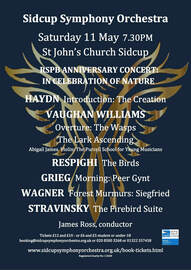Recently the Concertgebouw Orchestra in Amsterdam announced 'artistic partnerships' but no sign of a music director. This seems to be a trend, but does it serve classical music and its institutions well, or is it the product of a disfunctional system and shirking of responsibilities?
The Music Director role in many orchestras and opera houses has been eroded from several sides: some conductors and their agents must take their share of blame for this, as well as managements. Many such appointments have become nominal, merely enhanced guest conductors where the MD flies in and out, perhaps does not even speak the language of the country, maybe realises a pet project or two, but otherwise does not engage in the instution's day-to-day artistic direction and leadership. If the MD were a greedy monomanical tyrant in public and/or abuser in private, the institution is doubtless better off without him or her. However, is it not possible to have a conductor who assumes responsible and creative artistic leadership of an institution – which means being resident almost constantly, attending concerts, whether or not they are conducting, and with a deep vision of what an institution and its musicians are capable of achieving, both artistically and in a wider cultural and social context?
A music director should not need a ‘head of artistic planning’ or similarly titled person appointed, which is an abrogation of responsibility. Would not embracing the role wholeheartedly be more fulfilling than just flying endlessly for a few days for another fee? Guest conducting certainly is important for conductors, orchestras and audiences to give variety of perspective from which hopefully everyone learns, but it does not replace the role of a committed music director who both leads up-front in the concert hall and is capable of offering a deep artistic vision.
It may be better if institutions appointed music directors in a publicly accountable way through competitive open applications and due process, rather than the ‘smoke and mirrors’ system that appears to operate too often in the UK. Perhaps the latter is also part of the problem?
The Music Director role in many orchestras and opera houses has been eroded from several sides: some conductors and their agents must take their share of blame for this, as well as managements. Many such appointments have become nominal, merely enhanced guest conductors where the MD flies in and out, perhaps does not even speak the language of the country, maybe realises a pet project or two, but otherwise does not engage in the instution's day-to-day artistic direction and leadership. If the MD were a greedy monomanical tyrant in public and/or abuser in private, the institution is doubtless better off without him or her. However, is it not possible to have a conductor who assumes responsible and creative artistic leadership of an institution – which means being resident almost constantly, attending concerts, whether or not they are conducting, and with a deep vision of what an institution and its musicians are capable of achieving, both artistically and in a wider cultural and social context?
A music director should not need a ‘head of artistic planning’ or similarly titled person appointed, which is an abrogation of responsibility. Would not embracing the role wholeheartedly be more fulfilling than just flying endlessly for a few days for another fee? Guest conducting certainly is important for conductors, orchestras and audiences to give variety of perspective from which hopefully everyone learns, but it does not replace the role of a committed music director who both leads up-front in the concert hall and is capable of offering a deep artistic vision.
It may be better if institutions appointed music directors in a publicly accountable way through competitive open applications and due process, rather than the ‘smoke and mirrors’ system that appears to operate too often in the UK. Perhaps the latter is also part of the problem?

 RSS Feed
RSS Feed
